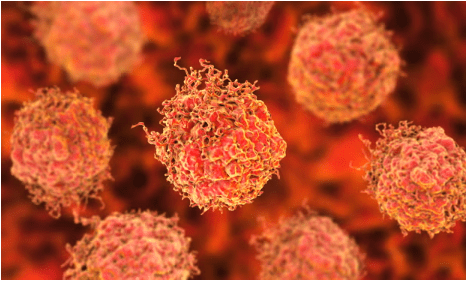A £42m cancer screening trial aimed at revolutionising the treatment of prostate cancer has been launched in the UK. The £42m Transform project will recruit thousands of men, to spot early signs of cancer that affects one in eight in UK
Thousands of men will be involved in its initial phase, which will begin in a few months. Several hundred thousand volunteers could be recruited as the programme progresses in coming years, say the trial’s organisers.
The trial, known as Transform, has been funded by Prostate Cancer UK with significant support from the National Institute for Health and Care Research (NIHR), Movember and several other partners, and has been set up because the condition has remained an intractable health problem in the UK for decades. One in eight men get prostate cancer in the UK and around 12,000 die every year.
Yet there is no screening service available to pinpoint the disease’s early, treatable stages. Symptoms frequently do not appear until the cancer has spread and has become incurable.
“The aim of Transform is straightforward,” said Dr Matthew Hobbs, the director of research for Prostate Cancer UK. “We want to find the most effective, least harmful methods to screen the UK’s adult male population for prostate cancer and catch the disease in its early stages.”
The prostate, a gland only found in men, is the size of a walnut and makes fluid which protects the tube that carries urine and sperm out of the body. When cancers develop there, they can remain without noticeable effect. It is only when these cancerous cells spread in some cases to the rest of the body that they trigger illness.
In the UK, more than 52,000 men are diagnosed with prostate cancer every year, about 140 a day. In total, around 490,000 men are affected by the condition.
In the past, cases have been pinpointed by detecting a chemical known as prostate-specific antigen, or PSA, in a man’s blood. Those with elevated levels can then be offered biopsies in which tissue from the prostate is removed by inserting a needle through the rectum.
“The trouble is that a high level of PSA in the blood does not necessarily mean a man has prostate cancer,” added Hobbs. “In addition, cancerous cells in a prostate do not necessarily spread round the body in every case. They can remain dormant.
“This means that biopsies can sometimes be carried out unnecessarily, which is a problem because it can be painful and sometimes leads to infections and occasionally sepsis.”
As a result, the UK National Screening Committee, which advises the government on health testing programmes, has refused to give the go-ahead for a national prostate programme on the grounds that it would do more harm than good.
“That has to change,” said Prof Hashim Ahmed of Imperial College London. “We have to be in the position that we are with breast and cervical cancer when a woman is invited by her GP to have a mammogram or a cervical smear. By contrast, prostate cancer testing is irregular, patchy and unsystematic.”
It is the aim of Transform – one of the largest medical research trials launched in the UK in recent years and whose funding includes £16m from the government – to put this right by pinpointing better ways to screen for prostate cancer.
Newly developed techniques, such as MRI scans that can spot affected prostates instead of relying solely on PSA tests to determine who to biopsy or not, will be tested as an alternative to biopsies. In addition, new gene tests will be used to highlight those who may be at elevated risk of getting the condition because of inherited susceptibilities.
“There is no major gene that puts a man at much higher risk of prostate cancer but there are around 400 that, in combination, raise the chances of man being affected,” said Hobbs. “We can use this panel of genes to test to see if they can pinpoint those who are at high risk. This could then form part of future screening programmes.”
Another problem for those tackling the condition is the response of those most at risk of the disease. Black men are twice as likely to get prostate cancer but are far less likely to come forward for testing. In trials to establish whether a national screening programme was viable, black men were far less likely than white men to respond to requests to sign up.
“That is a very worrying statistic and we urgently need to get round this problem,” said Prof Caroline Moore, the head of urology at University College London. Her team is to launch a “scan-in-a-van” service at a site in west London this year, where MRI scans in a mobile centre will be offered to black men over 45 to test for possible signs of prostate cancers.
“Instead of going through GPs, we will contact them through local community groups,” she said. “Hopefully, community scanning schemes can be incorporated into prostate screening programmes in future. It will be another part of the package, we hope.” SOURCE: TheGuardian.com. Article by Robin McKie Science editor. This article was published in TheGuardian


